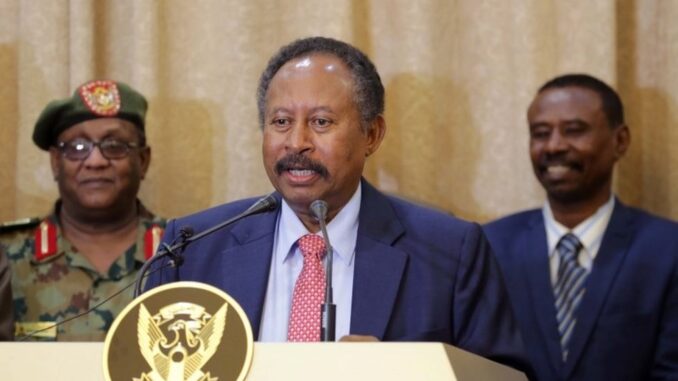
The Sudanese Prime Minister reiterated his criticism of the military’s weight in the national economy. A constancy at the risk of pointing the finger at high-ranking officers who want to keep their advantages, after having concluded in August 2019 a historic agreement for a gradual transfer of power to civilians. Abdallah Hamdok is determined to put an end to the stranglehold of senior military and intelligence officers on the country’s economy.
For the Sudanese Prime Minister, while it is normal for the military to invest in security-related businesses, “it is unacceptable” for them to do so in other sectors of the economy.
Under the regime of Omar al-Bashir, the generals and senior officials of the security services have taken the lion’s share in the most profitable sectors such as gold mining, gum arabic, meat exports, the flour and sesame trade.
The recent release of Abdallah Hamdok on Tuesday 14 December took place on the day Washington formally removed Sudan from the list of countries supporting terrorism, which now allows him to calmly consider trade with the rest of the world and attract investors. The United States is encouraging the new Sudanese leadership to embark on a path of good governance.
A week ago, on 8 December, the US Congress passed a law on “Sudan’s Democratic Transition, Accountability and Transparency”. “Civilian control must be established over the finances and assets belonging to the security forces,” the text states. The law even calls for the transfer of ownership of military-owned companies to the Ministry of Finance or any other entity that can be controlled by the civilian authorities.
Because today, these companies owned by the generals do not pay taxes on profits and operate in total opacity, while Sudan is still plunged into the economic slump that led to the fall of General Omar al-Bashir. The head of the Sovereignty Council, the country’s highest executive body, General Abdel Fattah al-Burhane, also head of the army, refuses to transfer these companies to the government. He says he is only prepared to make them pay taxes.
